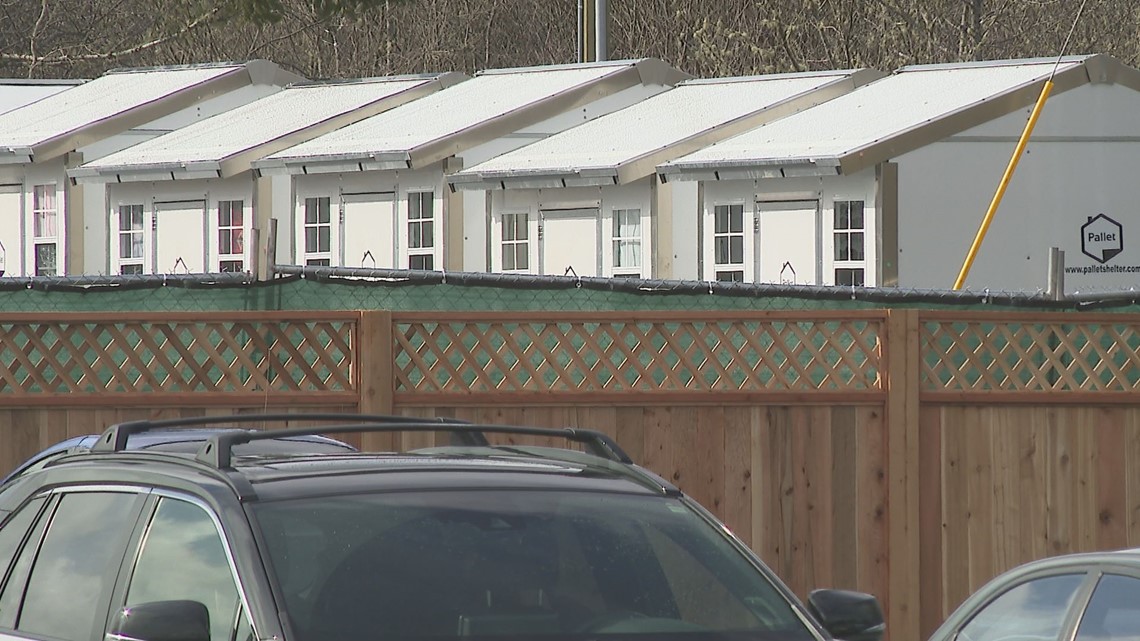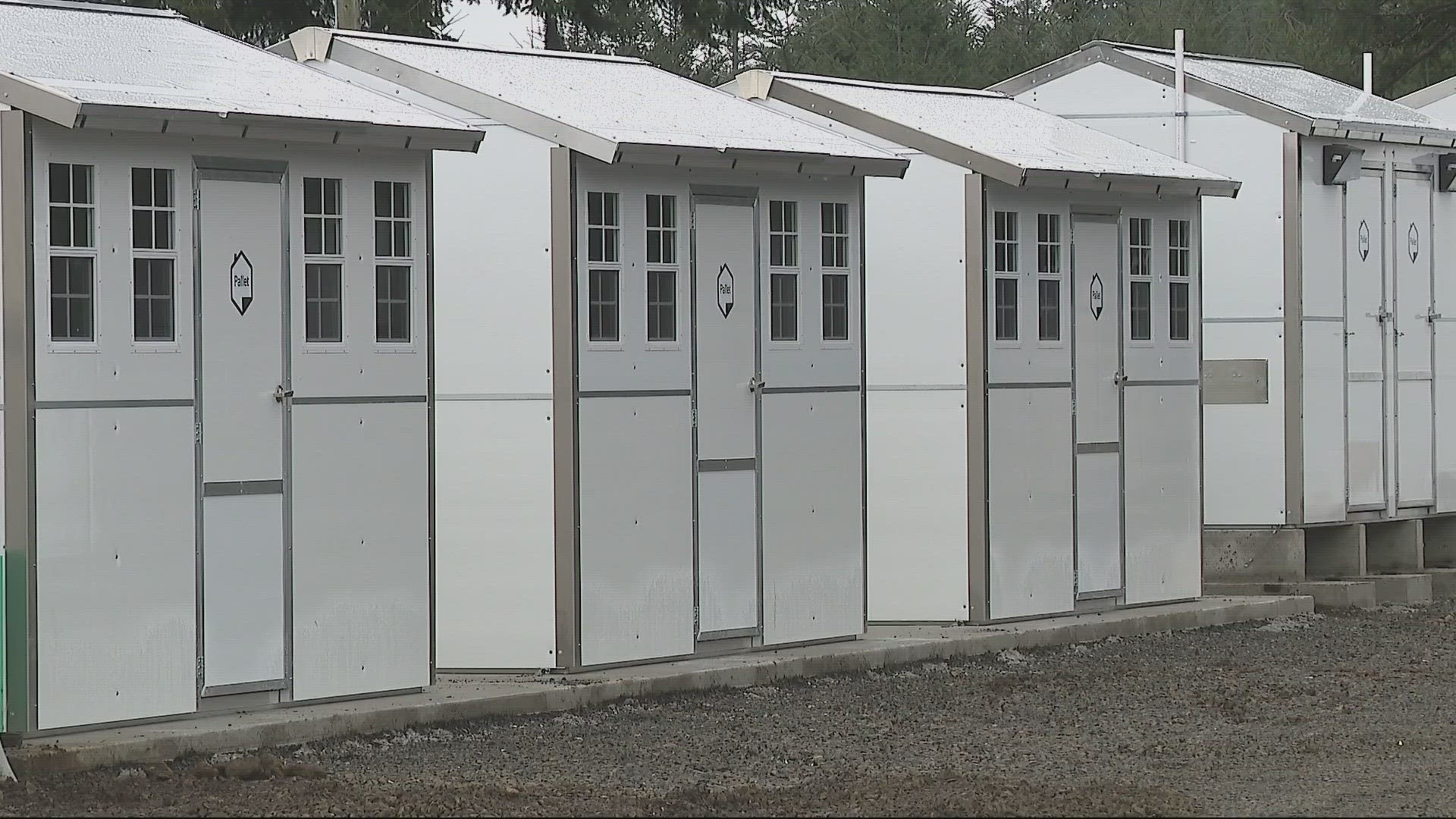GRAND RONDE, Ore. — The Confederated Tribes of Grand Ronde is working to support homeless tribal members with two new "tiny shelter" villages. The first village opened a few weeks ago, and tribal leaders are already building the second.
The community northwest of Salem, off Highway 22 on the edge of the coast range, is a rural area with many of the same housing difficulties other parts of Oregon are experiencing.
"It's become such an issue everywhere and for us as the tribe, we love our people and we want to be able to help them have resources and we want to be able to offer that up," said Kelly Rowe, who leads health services for the tribe.
The tribal community is currently working to pave the way for additional tiny shelter villages.
"These are 10 by 10 (foot) unit pods that we put together into a village for our tribal members… these are the bunks that drop down," Rowe explained as she showed off the large living pods.
The under-construction second village will have 15 pods that can house up to four people each, for up to a year.
"We knew that we had families that were affected, and so we knew we needed some larger units and so we have the larger units, plus we have community rooms because we don't want people to feel like they're blocked in," she said.
The second village is set to open in just a few weeks. Village One was completed recently, and people started moving in a few weeks ago.


Village One is right in town, set behind a wooden fence and positioned near a food pantry and the police department, and a little closer to services. It's made up of ten shelter pods with smaller units for couples or singles, and it filled up quickly.
"We've been open for about 3 weeks now and there's been some bumps trying to get people in and settled, but overall it went well," Rowe said.
Back at Village Two, the construction work continues. Once it opens, it will also provide shelter, services and help for people seeking ways to a better and healthier life.
"This is hugely important. We have many tribal members that have been unsheltered that were living in cars or tents or couch hopping from family members to friends that didn’t have anywhere to live… and this gives them the opportunity, a starting point to have a place to live," Rowe said. "And it gives us the opportunity to support them in finding short term and then long-term housing."
The help starts with providing the essentials: shelter, food, and community.
"And this is one of those small basic areas we can start and really help people. So for me it's really amazing. There's no place I'd rather be," said Rowe, referring to being a part of the tribe's solutions to the homeless crisis.

